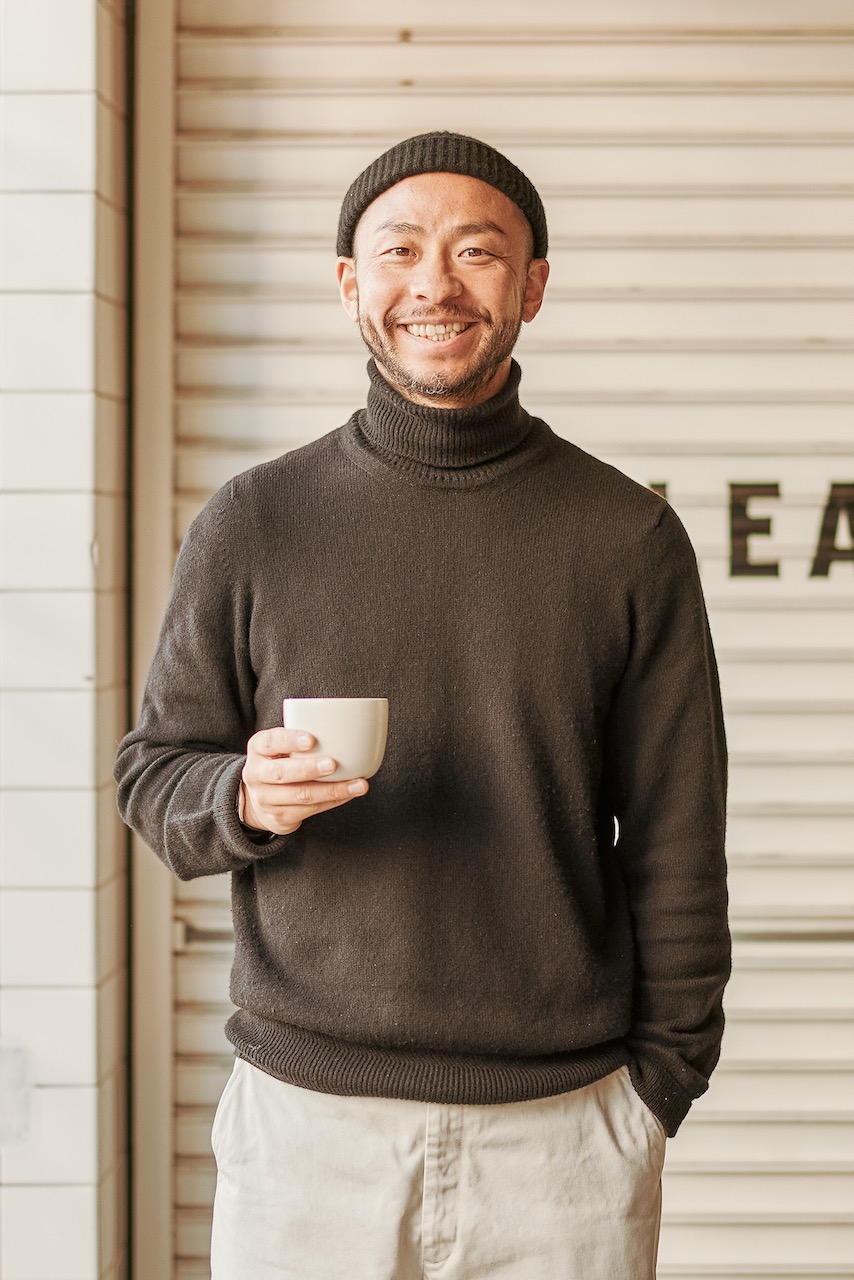
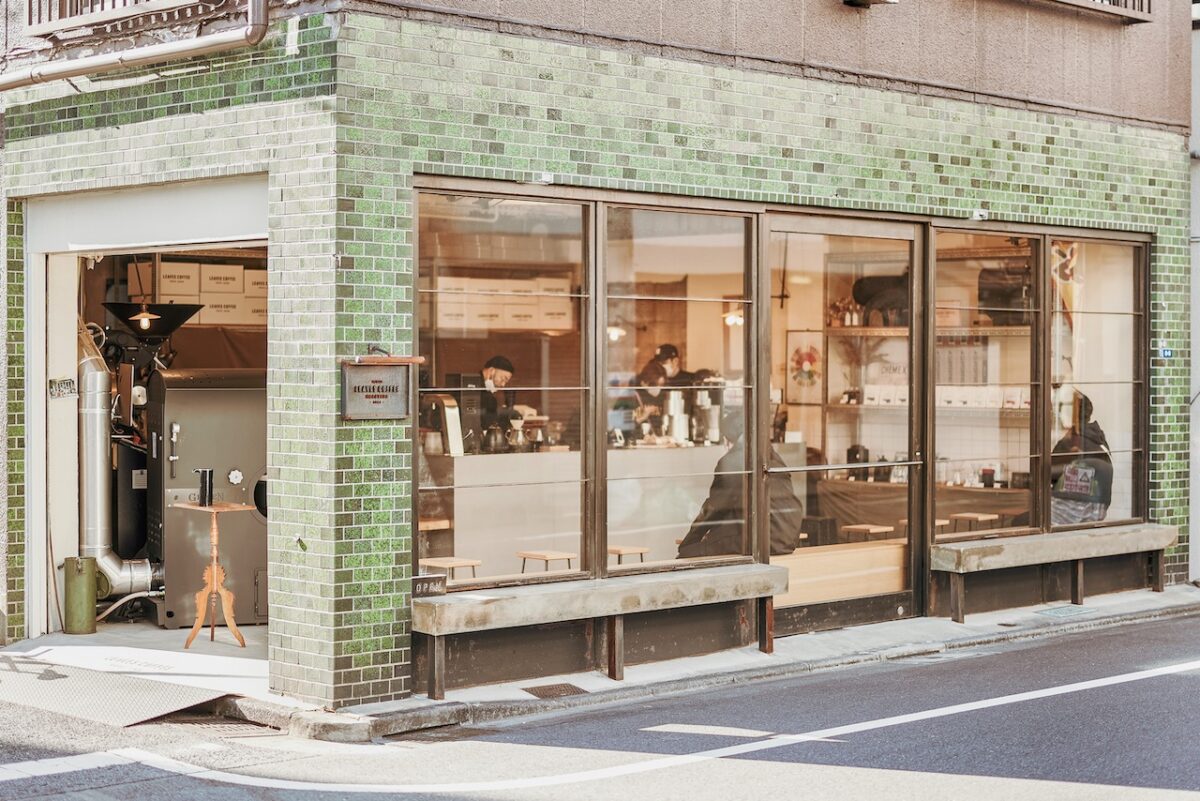
With the concept of “From town roastery, to the world,” LEAVES COFFEE ROASTERS operates a coffee stand and a roastery in an area of Tokyo full of a working-class charm. A former professional boxer, its owner Yasuo Ishii has now come to focus all his energy on coffee, having managed seven restaurants along the way. We’ve spoken to Ishii, who looks to become a world roasting champion and build a brand that will last a century.
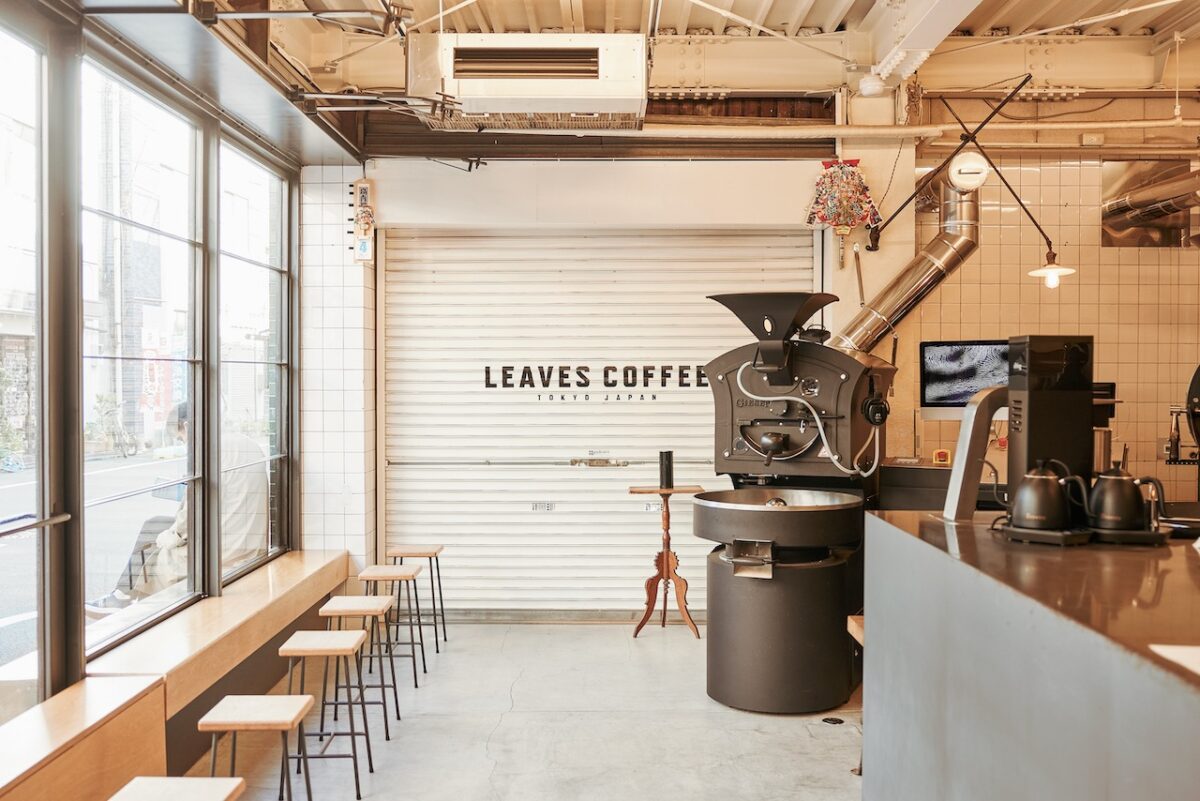
I can’t live without a dream
White tiles spotted with oil stains, shutters that give the feel of a retro mom-and-pop shop, brick outer walls — the simple design of this store, built on the former site of a fish store and a butcher’s shop, reflects Ishii’s aesthetics of minimalism.
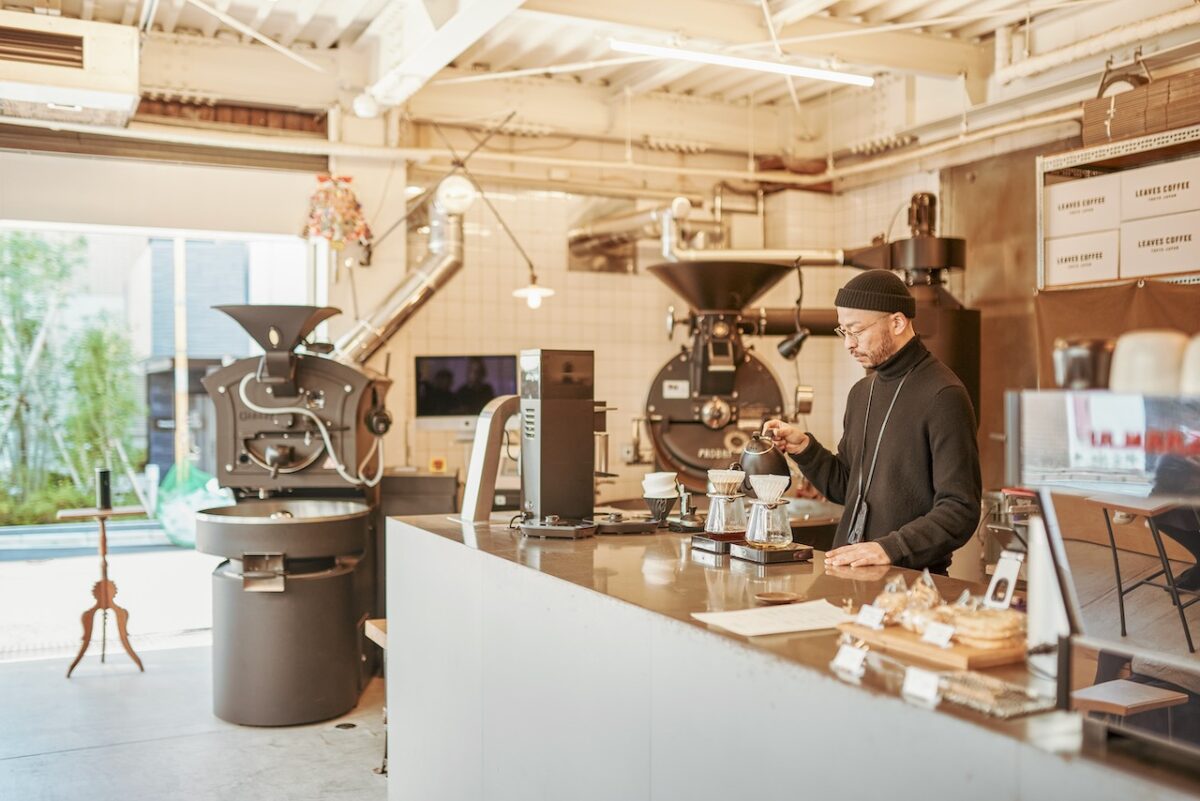
The most noticeable inside LEAVES COFFEE ROASTERS are its two roasters. Between the two, the 1950’s Probat U-15, sitting in the back of the store, has a particularly overwhelming presence. It’s this roaster, seemingly out of place in the 15-or-so square foot space, that symbolizes Ishii’s grand dreams.
“As declared in our slogan ‘From town roastery, to the world,’ I want my place to be loved by locals while also attracting attention from around the world. My goal is to create a brand that will last over a century. I’m trying to become a world roasting champion because I think it’s a necessary step toward building a strong foundation that will keep this ship afloat for more than a hundred years.”
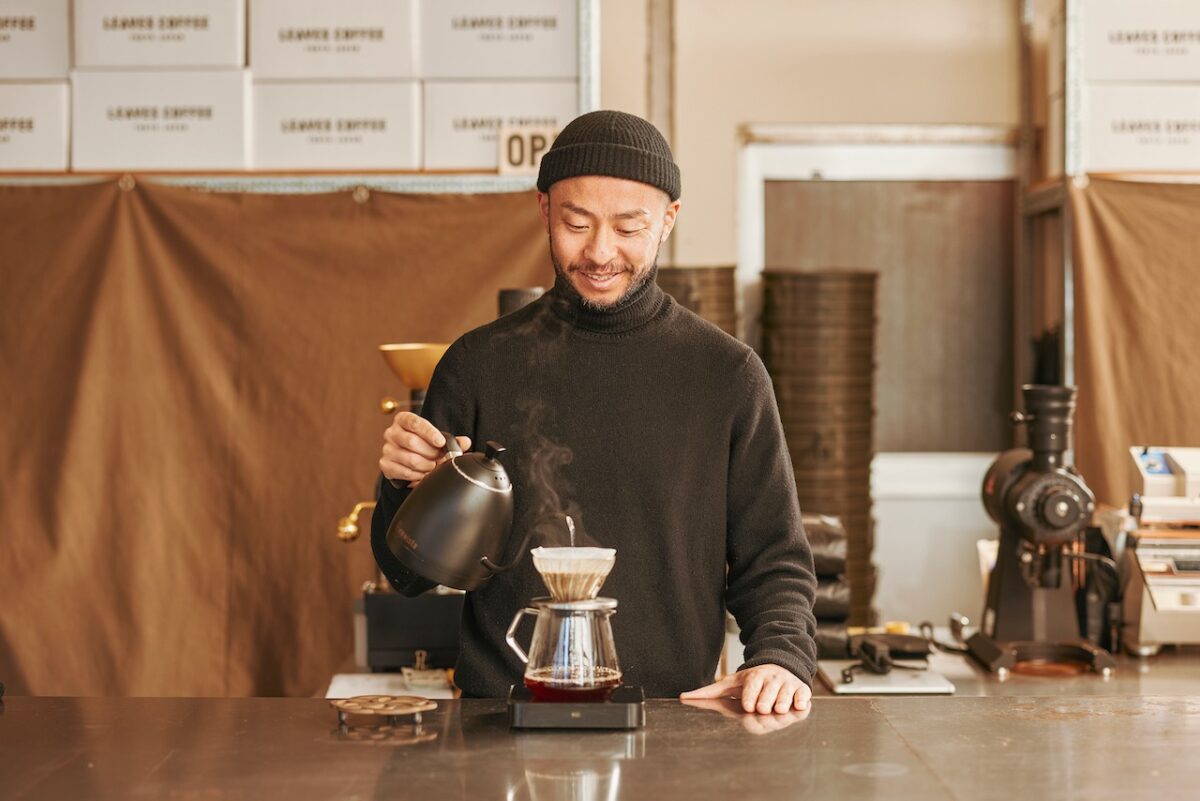
As the inaugural captain of LEAVES COFFEE, Ishii aims to set an example for the next generation.
“I want to show the next generation that this business is fun, and that you can make a living out of it if you do things right. It’s okay to start with something as vague as a dream or a yearning. I’m trying to live my life in a way that’ll inspire more people to open the doors to this world.
One thing I’m always mindful of is to balance my dreams with supply and demand. Dreams alone won’t keep your business up and running. But if you get caught up in supply and demand, you will end up only creating products that sell. That’s not healthy for your heart and mind. And this is coming from someone who can’t go on without dreams. I’ve been obsessed with becoming No.1 in the world ever since I was in my teens, after all.”

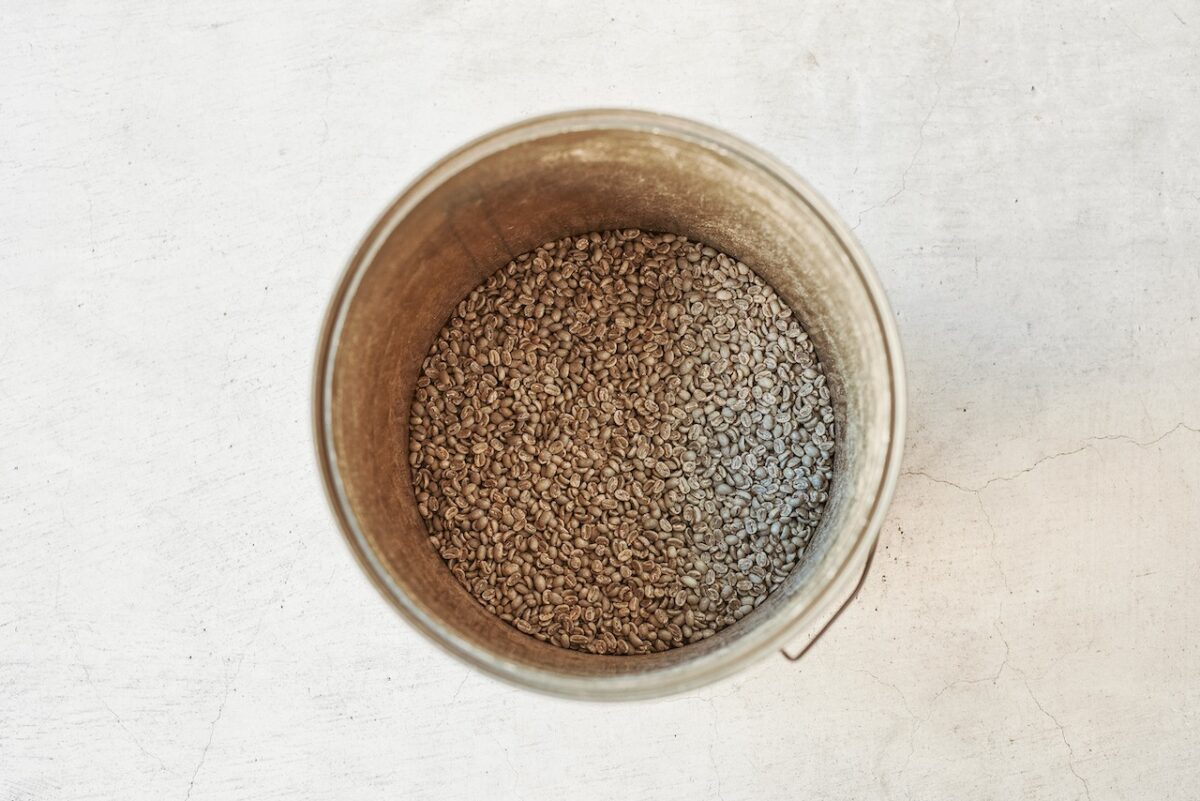
Wanting to create a peaceful world
Ishii was born and raised in Tokyo’s Kiyosumi-shirakawa district, a Japanese mecca for coffee aficionados where many cafes and coffee stands dot the streets. Though the neighborhood has now joined the ranks of trendy areas in the capital, it was one of the less safe places back in the 1990s, “like downtown L.A,” Ishii says.
In fact, fights between groups of teenage delinquents were almost a daily occurence when Ishii was in junior high school. And Ishii would often find himself in the middle of the fray. He was a member of the school’s kendo club, and after he finished his final competition in the summer of his third year in junior high school, he started going to a boxing gym.
“Some of my friends got hurt so badly they had to be hospitalized. So I wanted to become stronger to protect my friends. It’s not like I was interested in boxing. I just started as a way to train my body.”
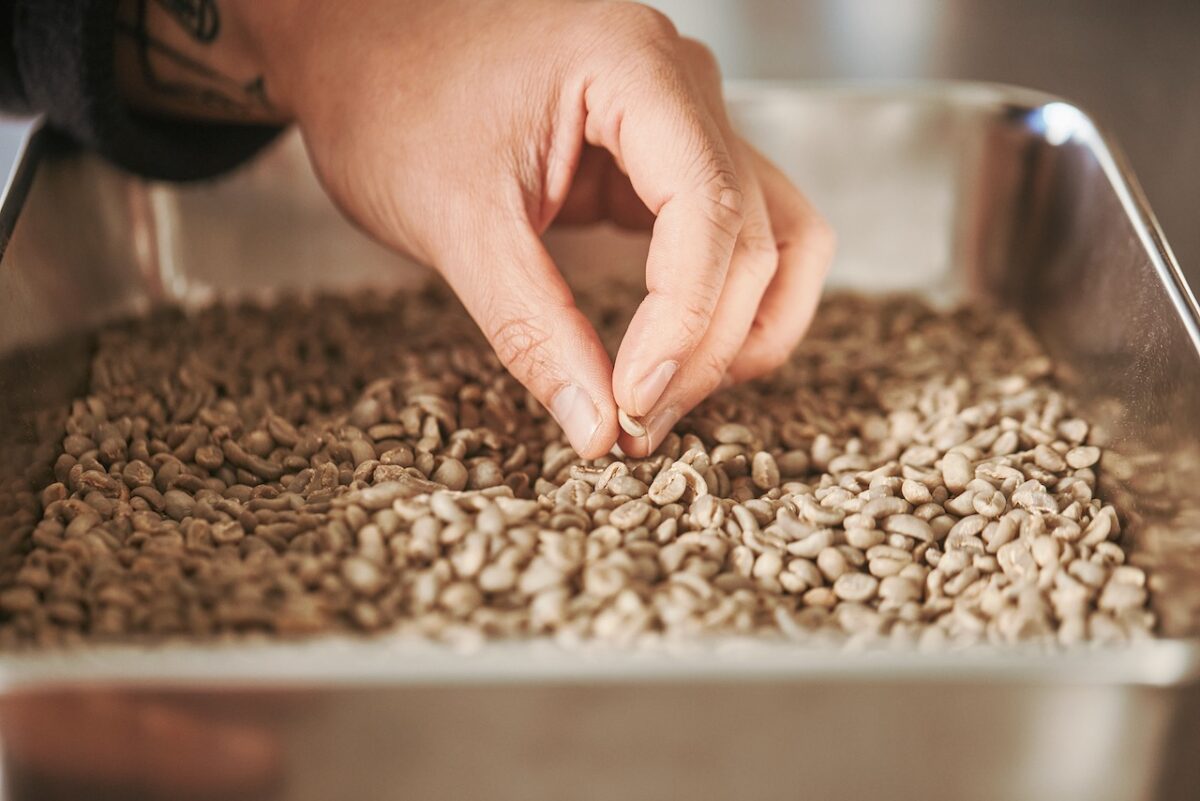
That said, Ishii is a type to easily become absorbed in whatever arouses his interest. Little more than a few months later, he’d gone from training at the gym once a week to showing up every day. While he did find joy in becoming stronger as a competitor, he couldn’t stay away from street fights. One day, one incident decisively changed his life.
“I used my boxing as a weapon and hurt somebody so badly. And that left scars on my mind. I don’t think I made the wrong decision, though, because my friends could have been hurt otherwise. Still, it made me realize that I could never escape conflict as long as I stayed in that world. And that’s when I knew I needed to draw a line and focused more on becoming a boxer as a competitor.”
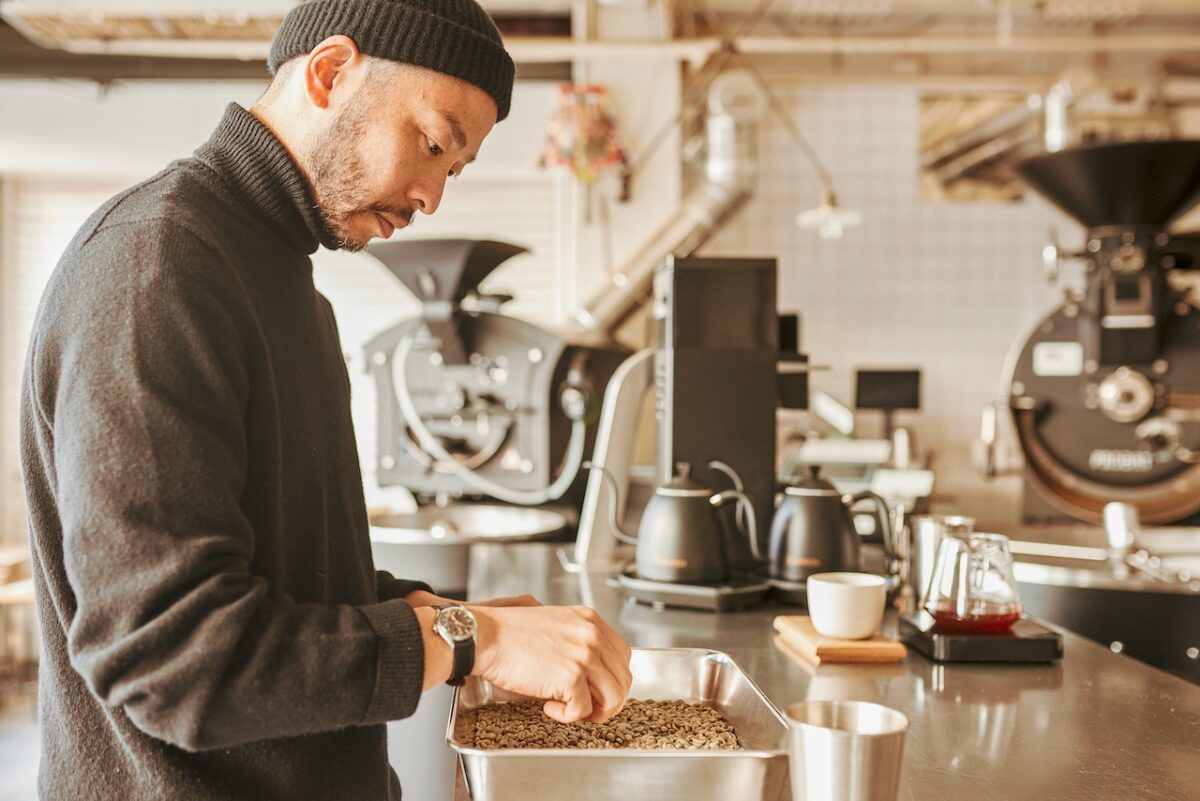
Having severed his connection with those he’d known until then, Ishii began a new life with the goal of becoming a world champion. With his natural athleticism and his ability to learn quickly, he received his professional license on his first try when he was 17, during his second year of high school.
“I didn’t just find something I could devote myself to, but boxing also helped me grow mentally, too. I never paid any attention to morals or rules until then. But boxing taught me how to live within the boundaries of rules. I feel embarrassed when I look back to those days, a junior high school brat heading to the gym with a big pair of sunglasses on,” he laughs.

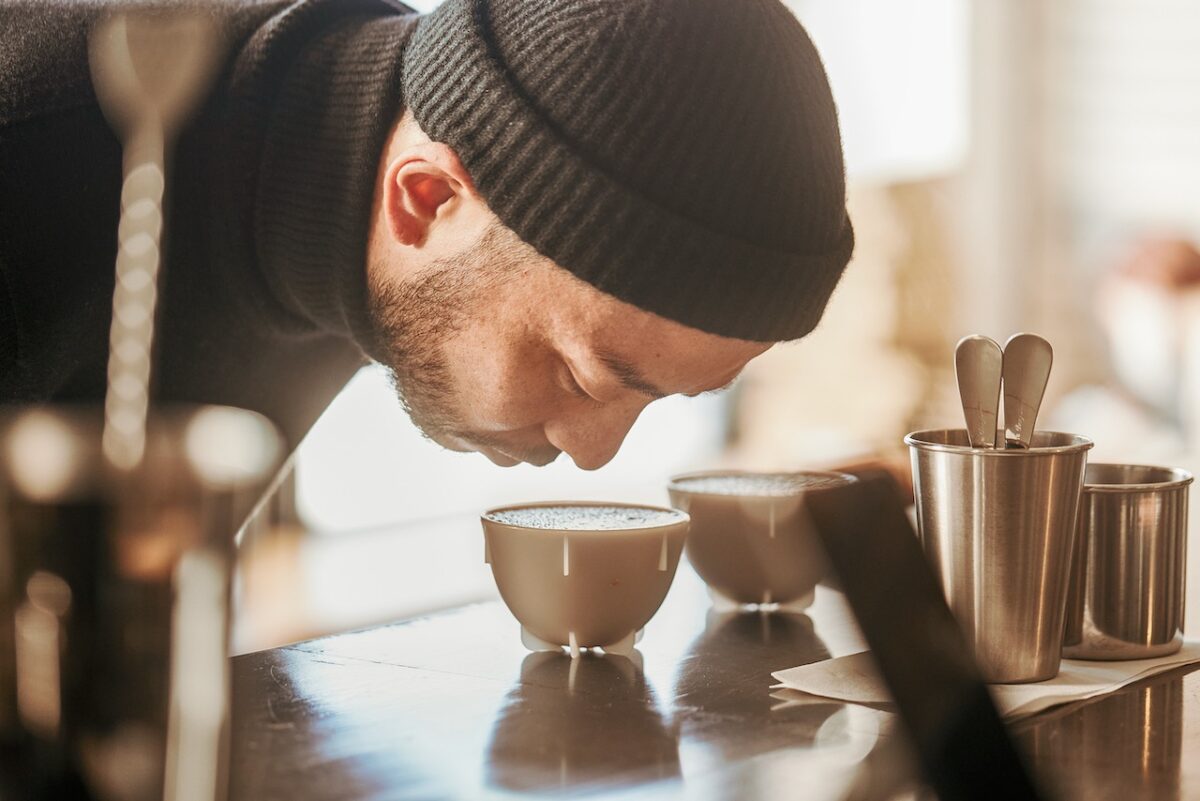
The title of “best in the world” grows distant
After receiving his professional license, Ishii quickly learned what it meant to be a pro boxer. He was knocked down for the first time in his life when he sparred against a world champion. Adding insult to injury, he fell down because of a body blow.
Half a year later, he had a breakthrough moment and was able to avenge his loss against the same boxer. A bit of complacency on the opponent’s part may have played a role, but it was a victory nonetheless, one that planted confidence not only in Ishii’s mind but also in others around him. Expectations ran high, with some even daring to say, “No doubt Ishii will become a national champion.” Ishii was a diamond in the rough.

The nightmare struck when Ishii was 19. A major injury during a fight left him with no choice but to retire.
“I was tormented by a sense of despair. I felt I’d lost my reason to live. But part of me also felt a sense of relief and freedom. I was still mentally immature. And all the expectations people had for me were nothing more than a burden. The pressure started to feel suffocating, and at some point the sport I loved seemed like self-torture.”
Liberated from the pressure though Ishii may have been, it wasn’t easy to suddenly fill a gaping void in his heart. Every time he heard on TV or in newspapers about Japanese boxers challenging for a world title, part of him hoped they would lose. He asked why it wasn’t him standing there in the ring. But no matter how many times he asked, the reality remained that he was no longer fit to compete. With no outlet to vent his frustrations, he grew jealous toward those who were fortunate enough to challenge for world titles. And Ishii began to distance himself from boxing.
“I went on to start working in the restaurant business, convinced that I was never going to be the best in the world at anything. I’d already become a father at that point. So my priority had shifted to making money.”
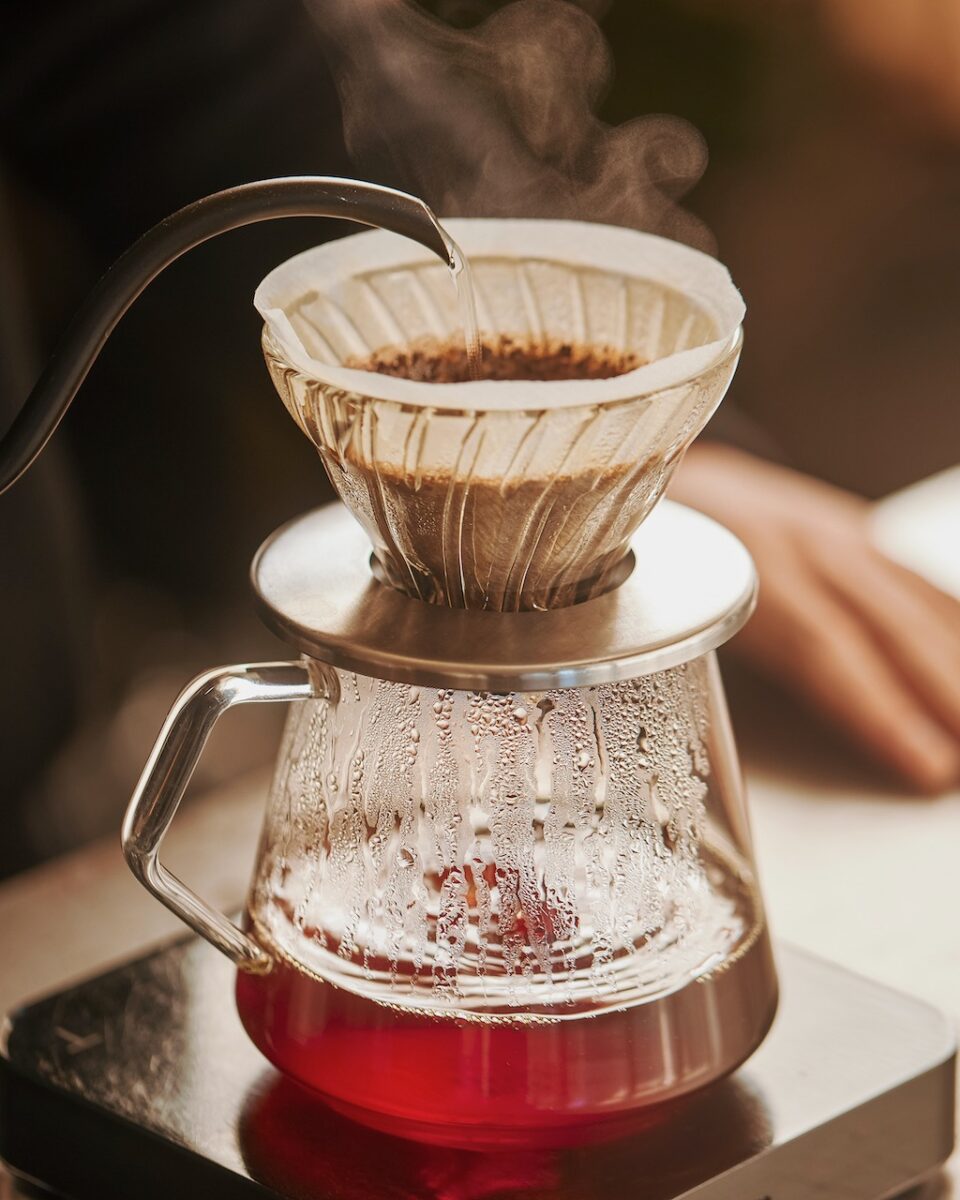
The answer is always inside you
It was around ten years later in 2010 when coffee took hold of Ishii’s heart. As he finished training and opened his own store, an acquaintance handed him some coffee to celebrate the occasion. This is what would draw him into a new world.
“I was moved by its fruity, berry-like aroma and sweetness. It was a fresh experience to me because I couldn’t drink black coffee and had always associated coffee with being dark and bitter.”
Wanting to learn more, Ishii began to go from store to store, drinking coffee. It was only natural for him to open a coffee stand attached to his restaurant. Soon after the opening, one customer came to Ishii’s coffee stand, saying that she couldn’t drink coffee because it tasted horrible, but that she wanted to try a cup brewed by Ishii. After this encounter, the woman started coming back for Ishii’s coffee every day.
“I’ve always had a strong desire to be self-dependent or to achieve things all on my own ever since I was trying to become a world boxing champion. That’s why I always avoided finding a teacher, whether in boxing or coffee. I’ve actually never worked at a coffee store before.”
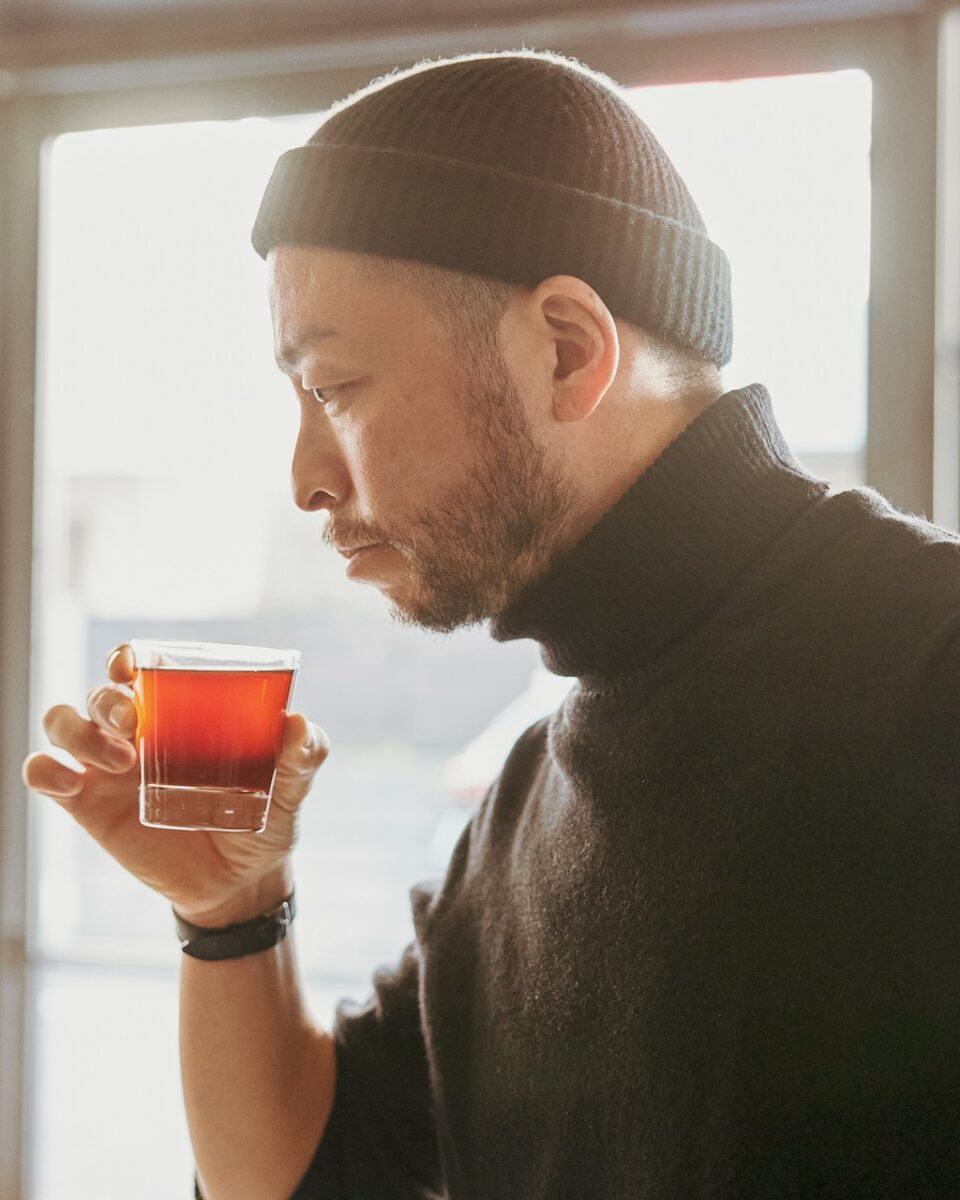
Having taught himself how to brew and roast coffee, Ishii opened a coffee stand in 2016 and a roastery in 2019. As someone who sought to reach a higher level as a barista, it was only a matter of time before he developed an interest in roasting.
“I hated myself for blaming the roaster when my coffee didn’t turn out to taste the way I expected. I only believe something that I’ve experienced firsthand. Even if everyone else raves about something, I don’t believe it until I experience it myself. So if I become the best roaster in the world, I’ll probably start growing my own coffee next.”
Shortly after he began roasting, Ishii finished 3rd in the Japan Roaster Competition in 2019, proving that he had been on the right track, a path he carved out by himself.
“I’ve started to think lately that I may have come as far as I can on my own. People who are best in the world at what they do, like Olympic gold medalists, all have strong teams behind them who support their physical and mental strength and diets. That’s why I’ve started to listen to other people’s opinions and advice more flexibly. I feel this attitude has borne some fruit.”

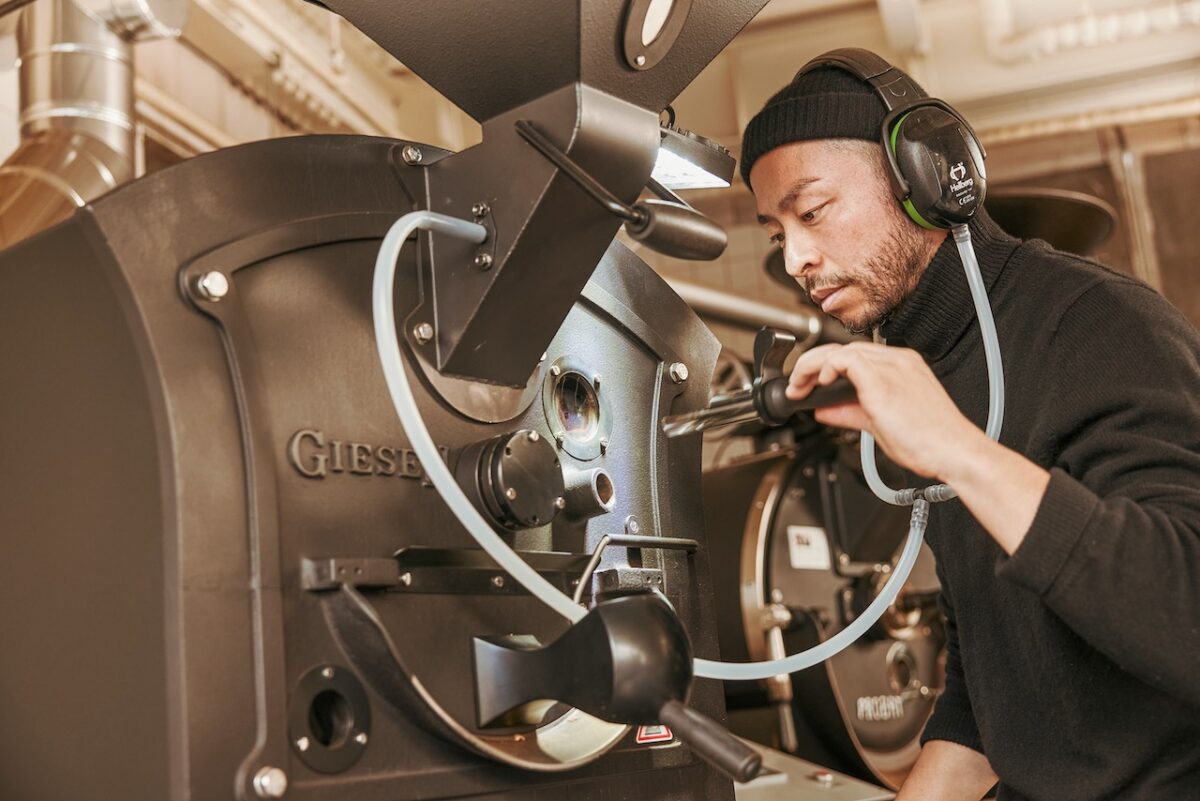
Living a burdened life
Since Ishii went independent in 2010 when he was 28, he had expanded his operations to run seven restaurants, all in different genres, such as a Spanish bar, a casual French eatery and an American diner in addition to LEAVES COFFEE.
“I couldn’t reject people when they came to me and said they wanted to work for me or run a restaurant with me. If I couldn’t hire any more people at the restaurants I had, why not make a new one? That’s how I thought. Even if that worked out for everyone at that moment, I was the one left having to clean up the mess when those people decided to start their own stores. Only last year did I realize that this wasn’t going to do me any good in the long run.”

But Ishii knew from early on that this wasn’t truly what he wished for. He didn’t want to create a family-like company. Instead, he wanted to focus on what he loved — coffee — and become the best in the world at it. This only became clearer to him when the Covid-19 pandemic hit, bringing with it financial difficulties to his business. And in 2020, Ishii let go of all his restaurants except for LEAVES COFFEE.
“I didn’t want to leave the managers and head chefs who took over those stores with debts, though. I could barely pay them any severance. So I gave them the restaurants while taking on all their debts myself.”
Perhaps it’s Ishii’s nature to take on more burdens than he needs to, even if they might be too much for him.
“I hated conflict even when I was in my teens, and yet I got into fights because I had this self-contradictory idea that I had to fight for what’s right. I’m a lazy person by nature. If you leave me to my own devices, I’ll just do whatever I feel like, eat what I want, and go to sleep. Maybe that’s why part of me feels the need to burden myself with some responsibility.”

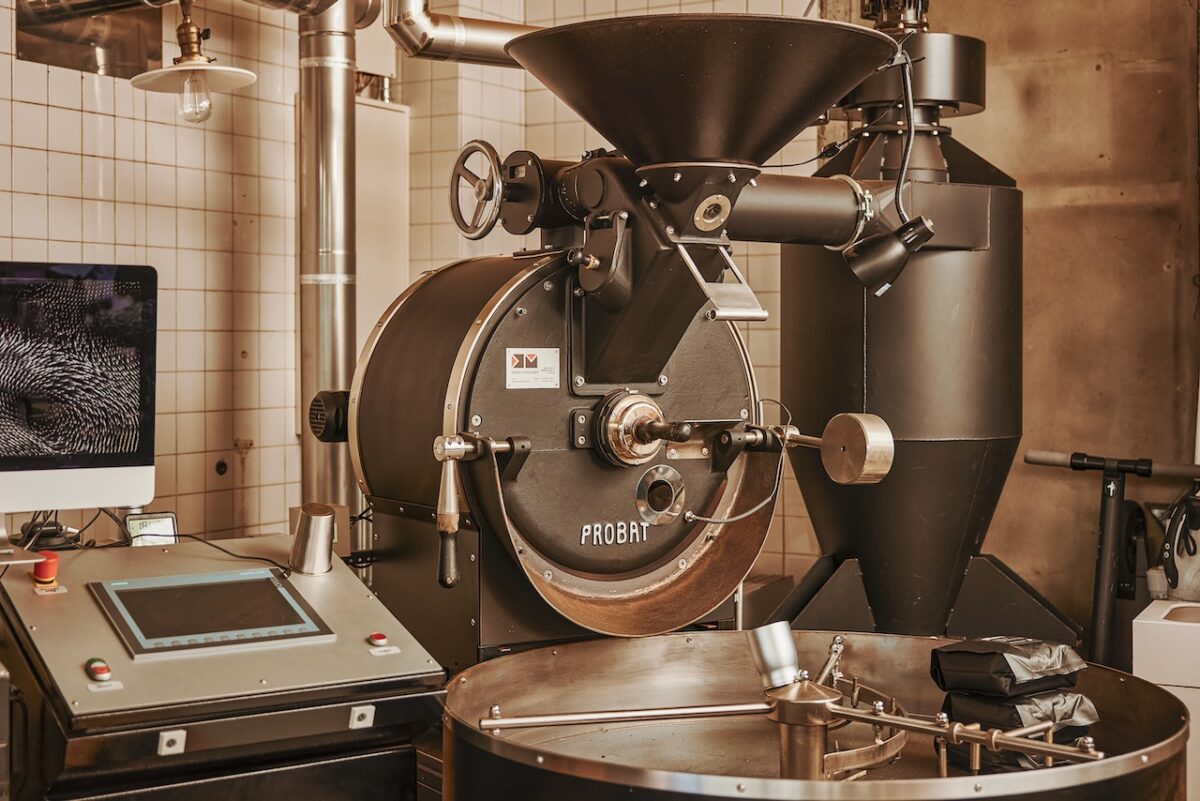
A once-in-a-lifetime challenge
In order to open his roastery, Ishii spent a hefty sum – the equivalent of the yearly salary of an elite business person – on a vintage Probat UG-15 roaster in 2019, once again taking on a life burdened with responsibilities.
“The iron from back then is more dense than it is now. So it keeps more heat trapped inside. That extra heat has a great effect on coffee, lending deep and lingering flavors to the coffee — but I only realized this afterwards. I’ve had countless cups of coffee around the world. But every single one that tasted good turned out to be roasted with a UG-15.”
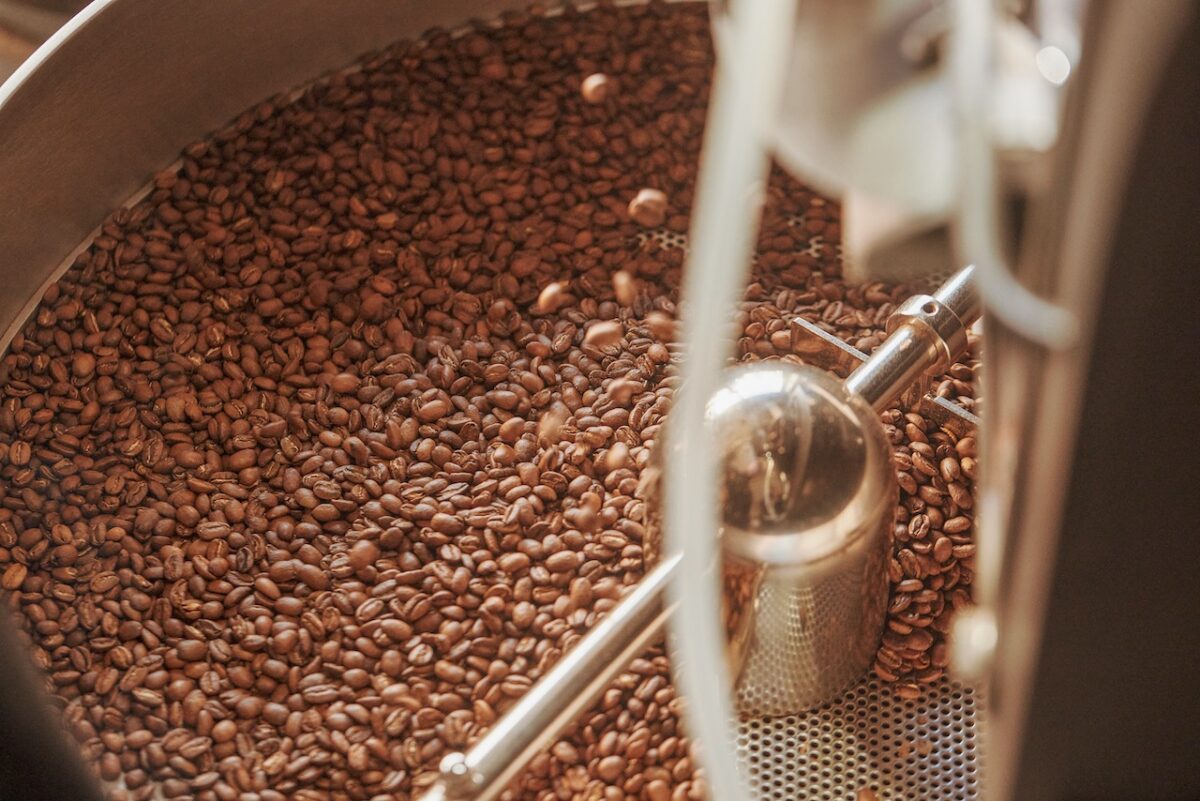
Of course, UG-15 isn’t the kind of thing that an individual with no capital, no influence, and no collateral can buy. Though he was introduced to and negotiated tenaciously with a dealership that specializes in vintage models, he wasn’t able to win their trust in the end. To show just how serious he was, he paid half the cost as a deposit to finally secure the purchase. After a year and a half, his dream had come true at last.
“All I counted on was my conviction that coffee tastes good when roasted with UG-15. Fortunately, I’m a simpleton. Once I believe something, I block out any other possibility. I thought I’d somehow find a way to make it work.”
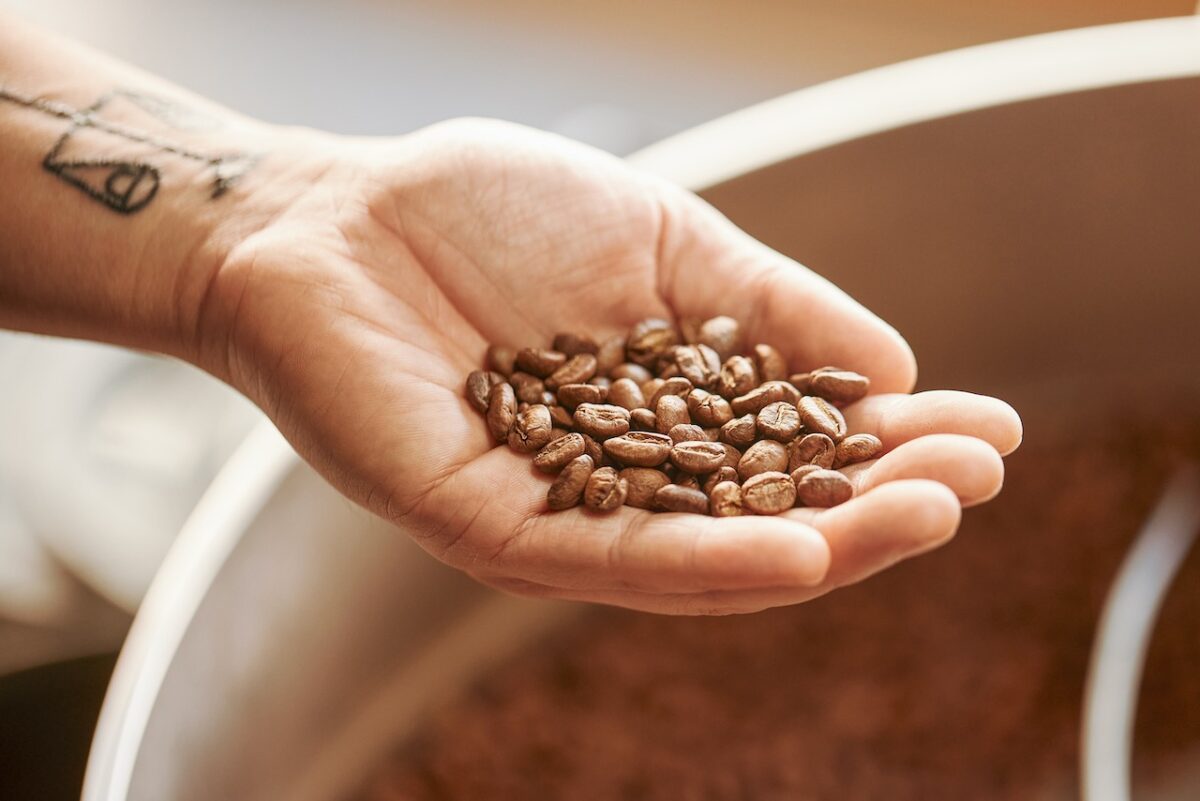
Still, UG-15 was the first roaster he’d ever used. And he had never been taught how to roast. Day after day, he had to throw away failed roasts, even straining his back one day.
“The stress was unbelievable. I was in such a bind that I didn’t know if I’d be able to make it another month. There was a future I wanted for myself so much that I was willing to take the risk. I always tell my staff that they can never grow if they stay in the comfort zone. When you’re in a slump, if you start seeing it as part of the process needed for you to grow, you’ll have breakthrough moments every now and then.”
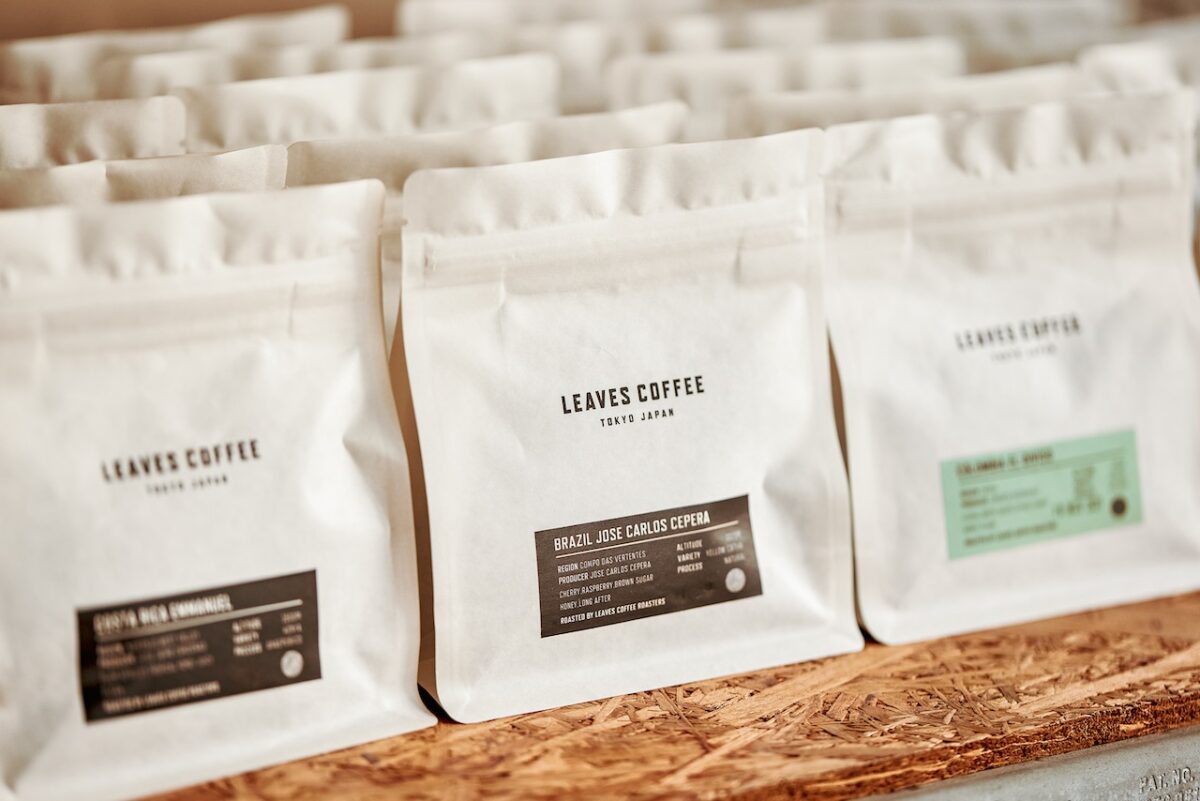
It will soon be three years since Ishii opened his roastery. Business is stable now, and he’s repaying debts from his seven restaurants and two roasters just with the earnings of LEAVES COFFEE. He’s now convinced that he made the right decision when he took on this once-in-a-lifetime challenge.
“I really feel coffee keeps me alive. That might sound dramatic, but it’s the only way I can describe it, not least because coffee gives me purpose. We switched to compostable packaging in October because I wanted to give back to coffee.”

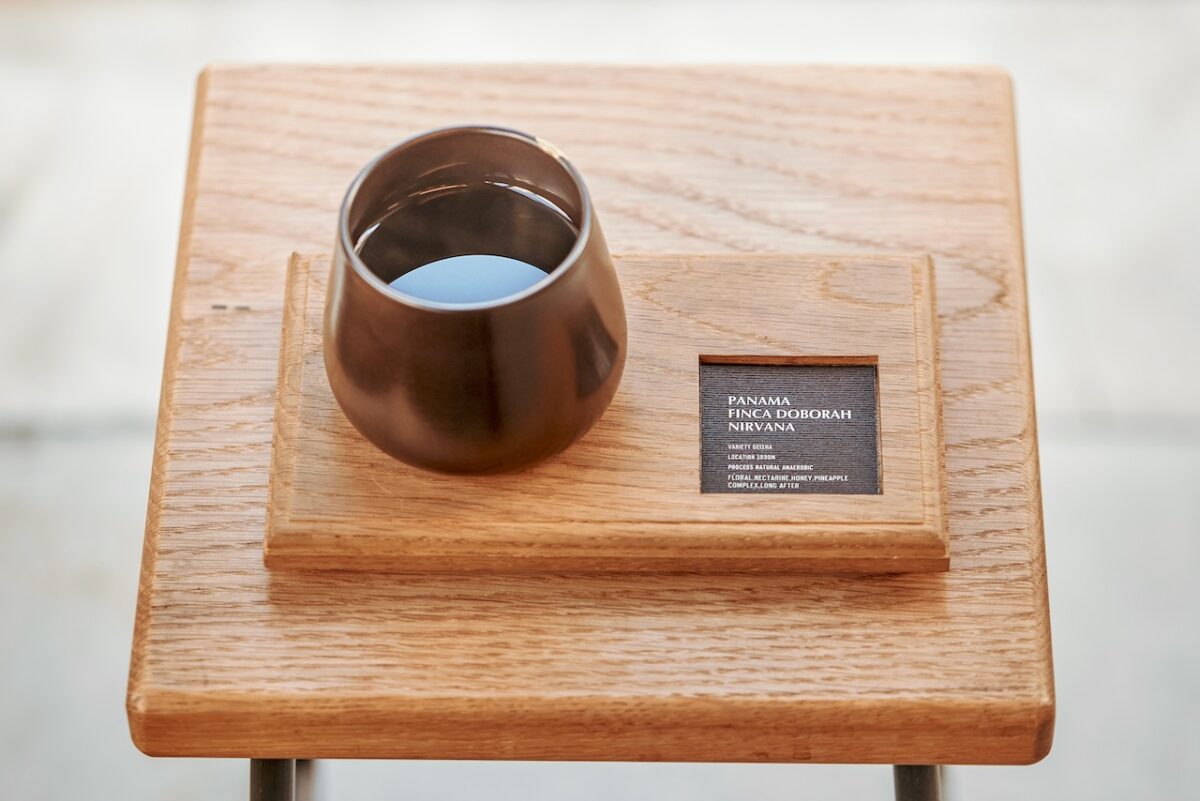
Coffee as a supporting role
Twenty years have passed since Ishii moved into the restaurant business. Having worked in different positions from cooking to service to management in a variety of restaurants, what was it that made him choose coffee in the end?
“I think an appeal of coffee is that even if it may not take the center stage, it can act as a supporting role in many different situations. It has an invisible power to bring people together and brighten up the atmosphere. Whether you’re on a date with your loved ones, enjoying time with your family, or in a meeting at work, coffee can have a major impact on how things go. These magical elements make coffee such a wondrous, romantic thing to me.”
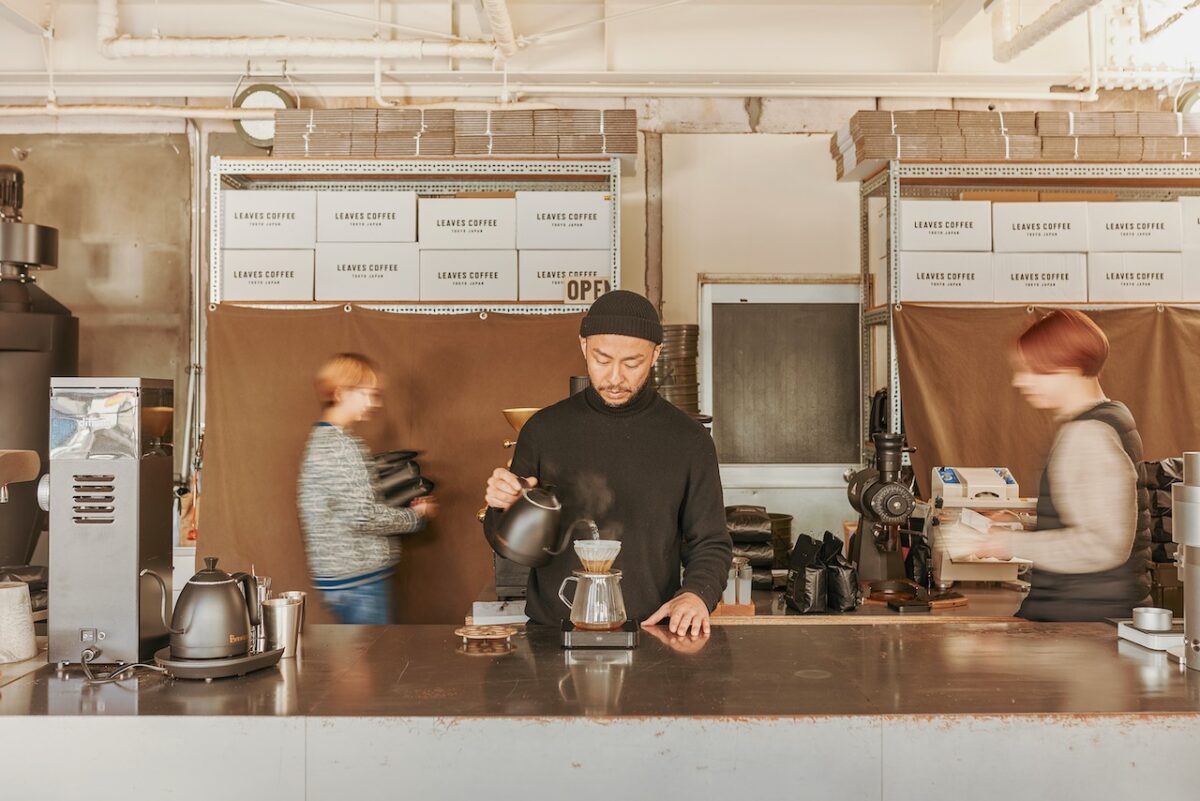
Ishii will be turning 40 next year. His uncompromising passion for coffee is tied firmly into his longing to become the best in the world — a dream he couldn’t fulfill through boxing. Coffee reignited the embers smoldering deep within his heart for many years.
“When I look at people who have become world roasting champions, I feel the same envy I felt in the past. The big difference now is that I can accept that reality and try to learn from it. I’ve grown mentally and can see the bigger picture. Now that I’m responsible for my staff and my brand, I’m able to use that as a positive fuel. My child is going to turn 20 and enter adulthood. So I’ll have a chance to once again pursue a life I want to live.”
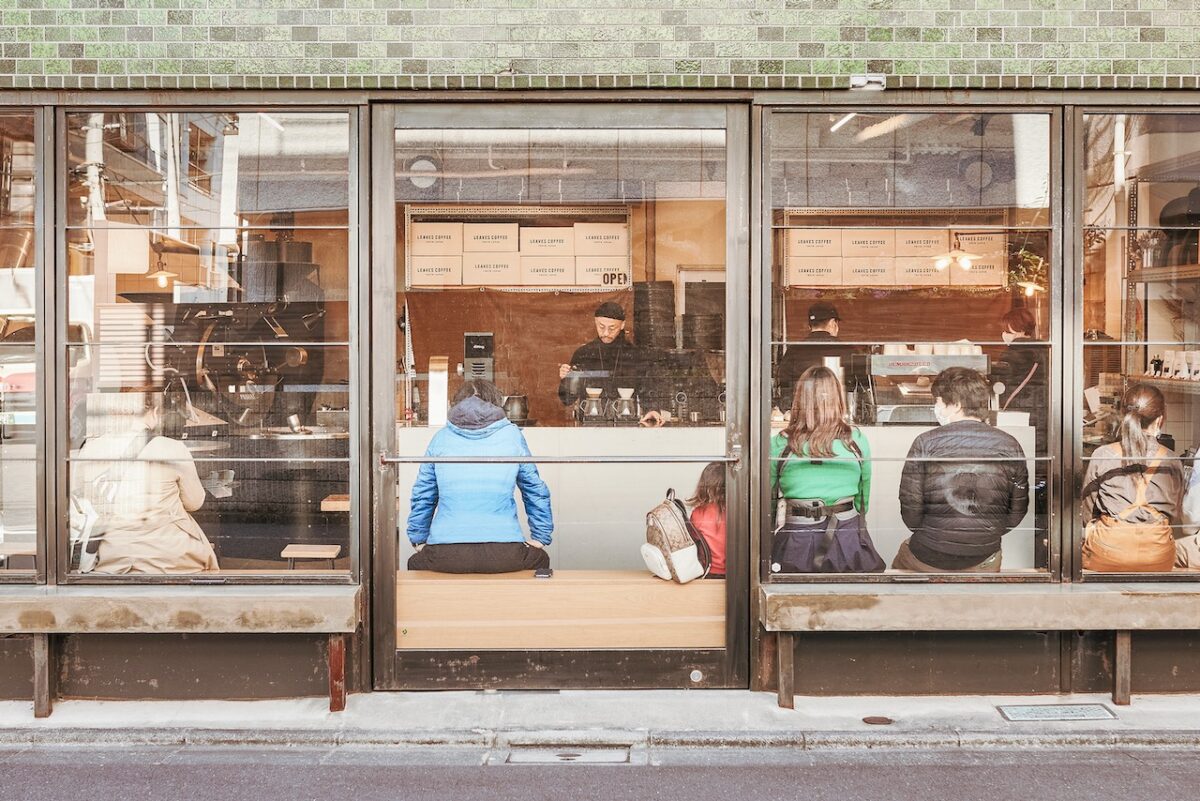
Through his way of life, Ishii has begun to prove that there are some heights people can reach only if they never give up. Wherever his voyage toward grand dreams takes him in the future, coffee is sure to be there by his side.
Originally written in Japanese by Tatsuya Nakamichi
Photography by Kenichi Aikawa
MY FAVORITE COFFEE
A cup of coffee lifts my spirits even if I'm alone and lonely. As long as I have coffee by my side, I can have a good time, whether I'm relaxing at an oceanfront resort or busy handling paperwork and payments in the office at the end of a month.

LEAVES COFFEE ROASTERS
- [Open]
- 10:00-18:00